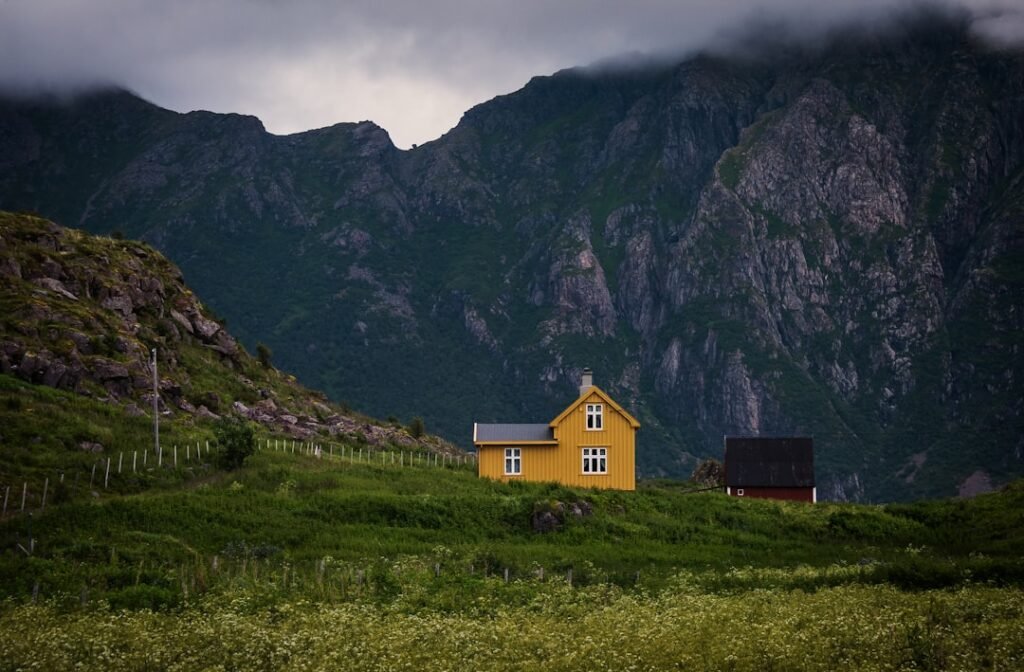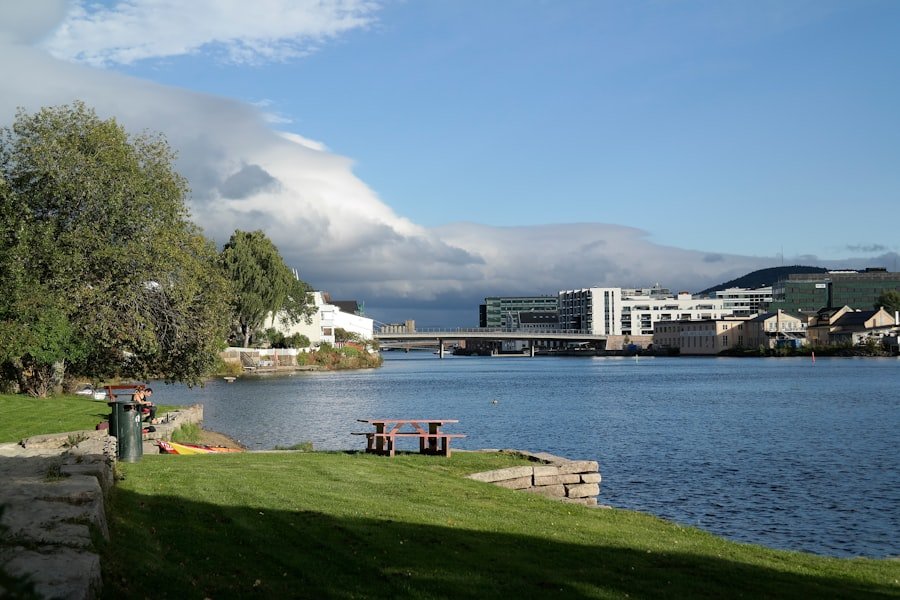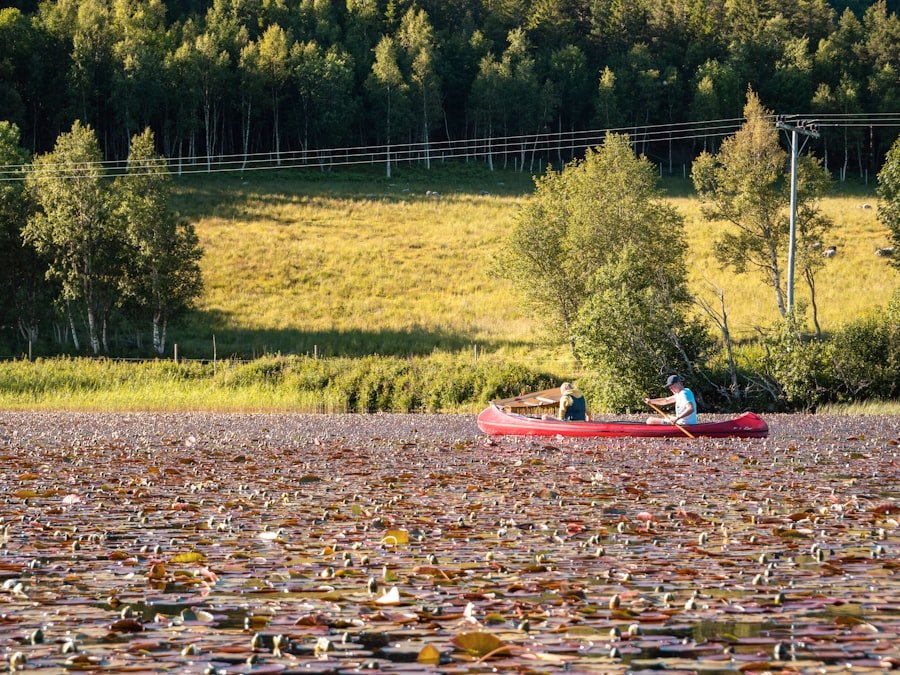

The Best Conversation Topics to Prepare for the Norskprøven
The Norskprøven, or the Norwegian Test, is a pivotal examination for anyone wishing to demonstrate their proficiency in the Norwegian language. It serves as a benchmark for non-native speakers, assessing their skills in reading, writing, listening, and speaking. This test is particularly significant for immigrants and expatriates who aim to integrate into Norwegian society, whether for work, study, or personal reasons.
The Norskprøven is not merely a test of language; it is a gateway to understanding the nuances of Norwegian culture and society, making it an essential milestone for many. The structure of the Norskprøven is designed to reflect real-life communication scenarios, ensuring that candidates are well-prepared for everyday interactions in Norway. The examination is divided into various levels, catering to different stages of language acquisition.
This allows individuals to choose a level that best suits their current proficiency and aspirations. As such, the Norskprøven is not just an academic exercise; it is a practical assessment that equips candidates with the necessary skills to thrive in a Norwegian-speaking environment. Enroll now to secure your spot in the NLS Norwegian Language School’s Norskprøven preparation course!
Table of Contents
ToggleSummary
- The Norskprøven is a standardized test for non-native speakers of Norwegian to assess their language proficiency.
- Everyday life in Norway is characterized by a high standard of living, efficient public services, and a strong emphasis on work-life balance.
- Norwegian culture and traditions are deeply rooted in the country’s history, with a strong focus on outdoor activities and nature.
- Current events and news in Norway often revolve around topics such as sustainability, innovation, and social welfare.
- Hobbies and interests in Norway often include outdoor activities such as hiking, skiing, and fishing, as well as a strong interest in arts and literature.
Everyday Life in Norway
Everyday life in Norway is characterised by a unique blend of modernity and tradition. The country boasts a high standard of living, with a strong emphasis on work-life balance. Norwegians typically enjoy a structured day that allows for both professional commitments and personal time.
The work culture is generally informal, with a flat hierarchy that encourages open communication between colleagues. This egalitarian approach fosters a sense of community and collaboration in the workplace. In addition to work, leisure plays a significant role in the daily lives of Norwegians.
Outdoor activities are highly valued, with many people engaging in hiking, skiing, and cycling during their free time. The stunning natural landscapes of Norway provide ample opportunities for these pursuits, making it easy for residents to connect with nature. Furthermore, social gatherings often revolve around outdoor activities, reinforcing the importance of community and shared experiences in Norwegian culture.
Norwegian Culture and Traditions

Norwegian culture is rich and diverse, deeply rooted in its history and geography. The country has a strong tradition of storytelling, with folklore and mythology playing a significant role in shaping its cultural identity. Norwegians take pride in their heritage, celebrating various festivals throughout the year that highlight their customs and traditions.
One such celebration is Constitution Day on May 17th, which marks the signing of the Norwegian Constitution in 1814. This day is characterised by parades, traditional costumes, and a palpable sense of national pride. Art and music also hold a prominent place in Norwegian culture.
The country has produced renowned artists and musicians who have made significant contributions to the global cultural landscape. From Edvard Munch’s iconic paintings to contemporary music festivals that showcase both local and international talent, Norway’s artistic scene is vibrant and ever-evolving. Additionally, traditional folk music and dance continue to be celebrated, preserving the cultural heritage for future generations.
Current Events and News in Norway
Staying informed about current events in Norway is essential for anyone looking to integrate into society. The country has a robust media landscape that covers a wide range of topics, from politics and economics to social issues and environmental concerns. Norwegians are generally well-informed citizens who engage actively in discussions about national and global affairs.
This engagement is reflected in the high voter turnout during elections and the public’s willingness to participate in civic activities. Recent developments in Norway have highlighted the nation’s commitment to sustainability and environmental protection. As one of the world’s leaders in renewable energy, Norway has made significant strides in reducing its carbon footprint and promoting eco-friendly practices.
The government has implemented policies aimed at preserving the country’s natural resources while fostering economic growth. These initiatives resonate with the values of many Norwegians, who prioritise environmental stewardship as part of their national identity.
Hobbies and Interests
Norwegians have a wide array of hobbies and interests that reflect their love for nature and community engagement. Outdoor activities are at the forefront, with many individuals participating in hiking, fishing, and skiing as regular pastimes. The breathtaking landscapes of fjords, mountains, and forests provide an ideal backdrop for these pursuits, encouraging people to explore their surroundings and appreciate the beauty of their homeland.
In addition to outdoor activities, cultural pursuits such as reading, music, and art are also popular among Norwegians. Book clubs are common, with literature being an integral part of social life. Music festivals attract large crowds, showcasing both local talent and international acts.
Furthermore, many Norwegians engage in creative hobbies such as painting or crafting, often drawing inspiration from their natural surroundings or cultural heritage.
Travel and Tourism in Norway

Norway is renowned for its stunning landscapes and rich cultural heritage, making it a popular destination for travellers from around the globe. The country’s dramatic fjords, picturesque villages, and vibrant cities offer a diverse range of experiences for visitors. From the bustling streets of Oslo to the serene beauty of the Lofoten Islands, Norway’s attractions cater to all types of travellers.
Tourism plays a vital role in Norway’s economy, with millions flocking to experience its natural wonders each year. The government has invested significantly in infrastructure to support this influx of visitors while ensuring that the environment remains protected. Sustainable tourism practices are increasingly emphasised, allowing travellers to enjoy Norway’s beauty without compromising its ecological integrity.
Whether it’s embarking on a scenic train journey or exploring the Northern Lights, Norway offers unforgettable experiences that leave a lasting impression on all who visit.
Food and Cuisine in Norway
Norwegian cuisine is deeply influenced by the country’s geography and climate, resulting in a unique culinary landscape that emphasises fresh ingredients and traditional cooking methods. Seafood plays a central role in Norwegian diets, with dishes featuring salmon, cod, and herring being particularly popular. The coastal regions boast an abundance of fish markets where locals can purchase freshly caught seafood, reflecting the nation’s strong maritime heritage.
In addition to seafood, traditional dishes such as reindeer stew and brown cheese showcase Norway’s agricultural roots. Meals are often hearty and comforting, designed to sustain individuals through long winters. Norwegians also take pride in their baking traditions, with pastries like krumkake and lefse being enjoyed during festive occasions.
As global influences continue to shape culinary trends, contemporary Norwegian cuisine has emerged, blending traditional flavours with innovative techniques to create exciting new dishes.
Education and Work in Norway
Norway’s education system is highly regarded for its emphasis on inclusivity and accessibility. Education is compulsory for children between the ages of six and sixteen, ensuring that all young people have the opportunity to receive a quality education. The curriculum focuses not only on academic subjects but also on fostering critical thinking skills and creativity among students.
Higher education institutions are well-respected globally, attracting both domestic and international students seeking advanced degrees. The work environment in Norway is characterised by a strong emphasis on employee well-being and work-life balance. The country boasts generous parental leave policies and vacation entitlements that allow individuals to prioritise family life alongside their careers.
Moreover, workplace culture encourages collaboration and open communication between employees at all levels. This supportive environment contributes to high job satisfaction rates among Norwegians, making it an attractive destination for professionals seeking fulfilling careers.
Health and Wellness in Norway
Health and wellness are integral aspects of life in Norway, with a strong focus on preventive care and healthy living. The country boasts an efficient healthcare system that provides comprehensive services to all residents, ensuring access to medical care regardless of socioeconomic status. Regular health check-ups are encouraged, promoting early detection of potential health issues.
Physical activity is also highly valued in Norwegian society, with many individuals incorporating exercise into their daily routines. Outdoor sports such as skiing and hiking are popular pastimes that not only promote physical fitness but also foster a connection with nature. Mental health awareness has gained traction in recent years, leading to increased support services aimed at addressing psychological well-being alongside physical health.
Weather and Nature in Norway
Norway’s weather can be as diverse as its landscapes, ranging from mild coastal climates to harsh inland winters. The country experiences distinct seasons that offer unique opportunities for outdoor activities throughout the year. Summers are typically mild with long daylight hours, making it an ideal time for hiking and exploring the fjords.
Conversely, winters can be cold and snowy but provide excellent conditions for skiing and other winter sports. The natural beauty of Norway is unparalleled, with dramatic fjords, towering mountains, and lush forests creating breathtaking vistas at every turn. National parks protect vast areas of wilderness where visitors can immerse themselves in nature while observing wildlife such as reindeer and elk.
This connection to nature is deeply ingrained in Norwegian culture, influencing everything from leisure activities to artistic expression.
Tips for Practicing Conversational Norwegian
For those looking to improve their conversational Norwegian skills, immersion is key. Engaging with native speakers through language exchange programmes or social gatherings can significantly enhance fluency and confidence in speaking. Additionally, utilising online resources such as language apps or podcasts can provide valuable practice opportunities outside formal lessons.
Regularly consuming Norwegian media—such as films, music, or books—can also aid language acquisition by exposing learners to colloquial expressions and cultural references. Setting achievable goals for daily practice can help maintain motivation while gradually building proficiency over time. Ultimately, embracing the language through real-life interactions will foster a deeper understanding of both Norwegian communication styles and cultural nuances.
Register for the NLS Norskprøven preparation course at the Norwegian Language School now!
If you want to learn Norwegian, you can register for classes here. We look forward to hearing from you and helping you become fluent in Norwegian.





